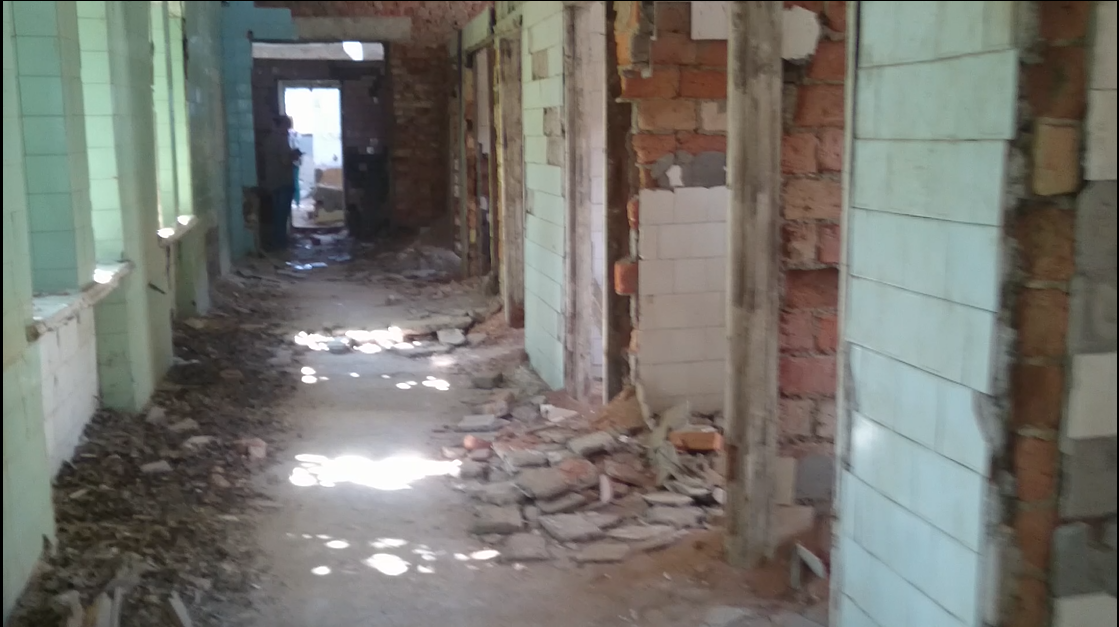
I was only a teenager when — by suggestion of a friend under the intelectual fever that, in the early 80’s, stroke some middle-class sectors in Spain — I went to an unlikely cineclub in a not so advisable district of Madrid, rather distant from home, for watching a so-called “independent” movie titled Stalker, supposedly of the science-fiction genre and directed by some exotic and unknown (for us) Russian filmmaker called Tarkovski.
Needless to say that, used as I was to the livelier -when not frantic- action pace of USAmerican or European films that (then exactly like today — nothing has changed in this respect) almost exclusively filled our billboards and TV channels, I found it desperatingly slow, mostly boring and virtually incomprehensible. Besides, since I was expecting a “proper” sci-fi work, I was rather disappointed.
However, there was something indefinably interesting about it that outstood; not just the fact that it was different from any other movie I had watched before, but something else that I could not quite grasp; and despite my uneducated taste of those times and my little knowledge of the world — let alone the Russian soul, I had the feeling that it contained some message worth apprehending, and that some kind of art was involved worth being understood.
But years passed, decades went by and, though I always kept in mind the idea of someday watching it again, the only thing I could eventually remember about Stalker was its obscure, disquieting nature, and its excruciating slowness.
Only one month ago, lead by my (of late) immersion in the Rusian language and culture, I downloaded it for that lustrums-procrastrinated second try; and this time my watching experience was quite different. More familiar with the “Soviet way of doing cinema”, as well as with the Eastern-European social reality, and more mature myself (at least, I can certify I’ve left adolescence behind), I got a better understanding of what was taking place on the screen and of the language with which Tarkovski was trying to talk to his public. Among other things, I realized that Stalker is not so much science fiction as it’s psychology or perhaps philosophy, and that, despite its pretentiousness, contains at least the seed for its own discredit, which is in itself creditable: the characters themselves discuss the possibility that the whole mistery about the Zone and the Room may just be a farce created by the stalkers to exploit and make business out of the self-delusion of the selected visitants.
Anyhow, it’s not a review of that movie what I’m attempting here, but to account for some sort of coincidence that happened a few days back, while spending a week in that peculiar, ambiguous and two-sided city of Odessa.
In the company of three locals and friends the non-ordinary type — rather the type that might probably befit a Tarkovski film; we jumped onto some unlikely mashrutki –those Russian-style minibuses that provide for most of the local public transportation– and, at the terminus stop, arrived to an even more unlikely place, and forlorn, in the outskirts of town — za gorodom as they say here. As soon as I stepped off the bus, I could feel the eeriness of the place. Nearby the shore of a salty shallow bay with allegedly medicinal mud flats there stood, to one side, on the empty ground taken by weed, three scattered and run down tall towers of appartments totally deserted, and to the other there was the long low building of an old, abandoned balneary and the forsaken statue of its founder; yonder, the silver dome of an orthodox little church could be spotted in the middle of nowhere; and the rusty ex-yellow stroke of an above-the-ground gas pipe seemed to underline, with a surrealistic note, the strange nature of the whole scene; a scene that had acquired an oneiric dimension in the ssunny and dreamy afternoon.
Under the shadow of a tree by the decaying balneary, a flight of stairs led up to a doorles hollow in the wall, into whose darkness I saw my friends disappear; and I followed them suit. No sooner had I stepped inside, I felt myself as a stalker smuggling into the Zone and heading for the Room. It was a despoiled place, full or rubble, debris and torn partition walls that once divided the many compartments of the building. Deserted and lifeless, perfectly still except for our own footsteps, I could feel the place as strongly as if it were still imbued by the thousand voices of all those who once used those facilities; as if I could see their lives, their comings and goings, their joys and sorrows. There, in that quiet place now only inhabited by silence, suddenly the movie Stalker made perfect sense, and became so easy to understand that I was astounded. No interpretations were anymore necessary, but everything simply fit into place like falling cubes of a well-solved Tetris game: I had just experienced and apprehended Tarkovski.
